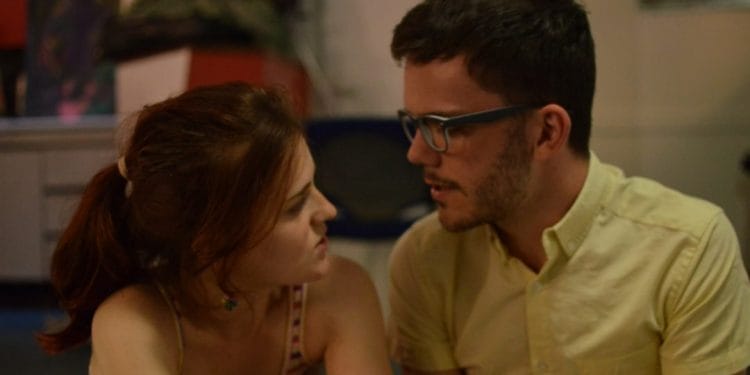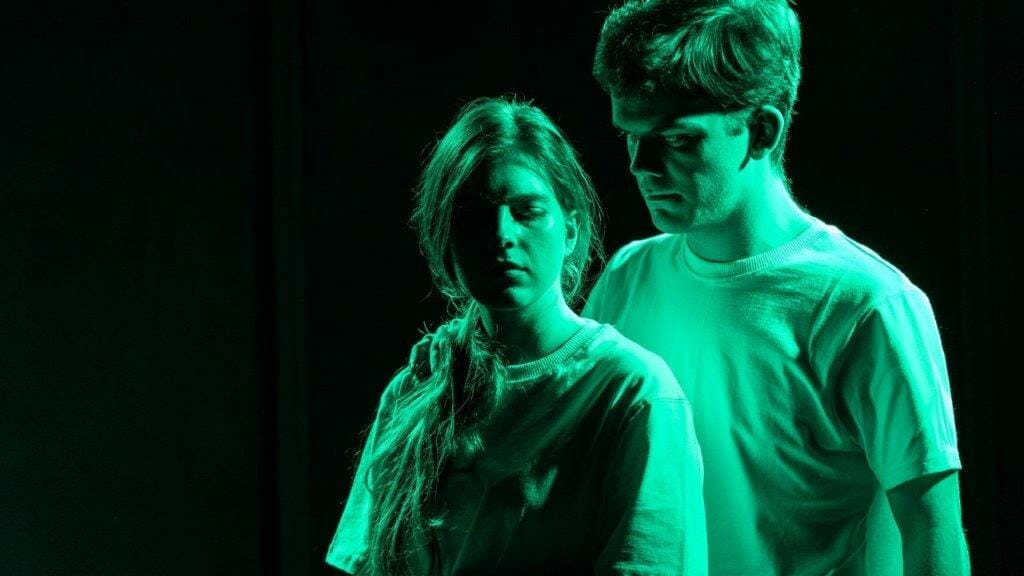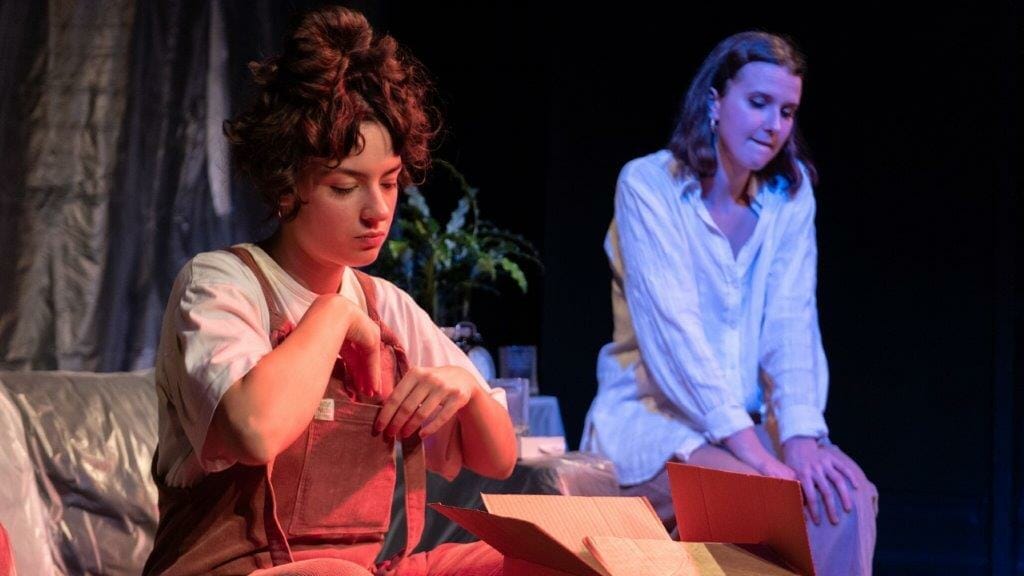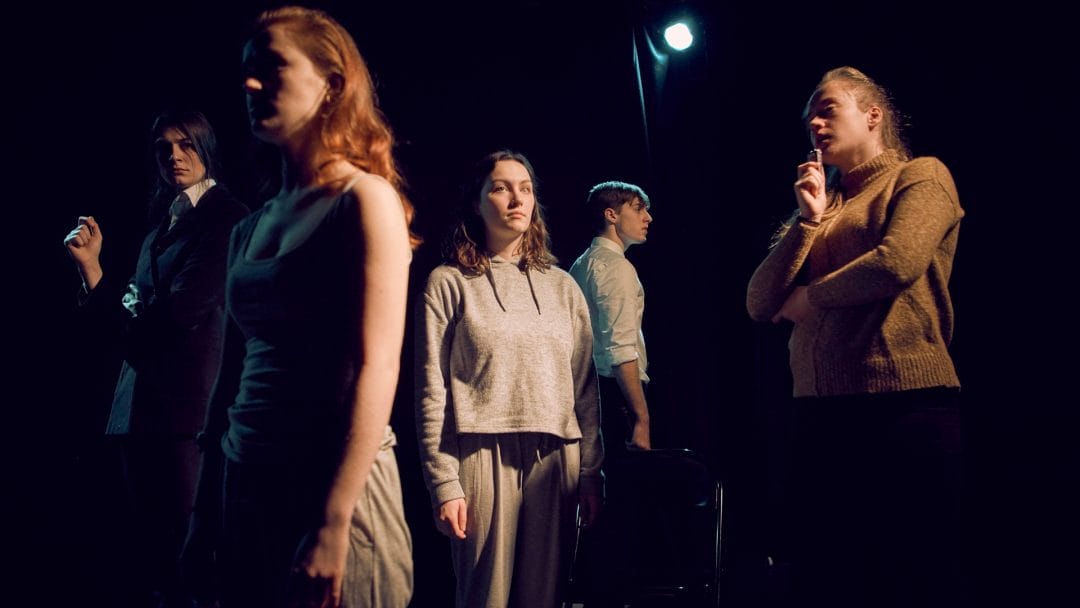 We all possess it, that instinct to reach out a hand. To touch another… to help? To harm? Or just because we’re lonely? As our experience of the world becomes increasingly less tactile, hidden behind screens and voice commands, Artificial asks; how does this affect our experience of human encounters? How do we as humans, remain so?
We all possess it, that instinct to reach out a hand. To touch another… to help? To harm? Or just because we’re lonely? As our experience of the world becomes increasingly less tactile, hidden behind screens and voice commands, Artificial asks; how does this affect our experience of human encounters? How do we as humans, remain so?
Dom (Luke Culloty) is a man who spends most of his day with machines. He even communicates with the few fellow humans in his life via machines, in the form of voicemails. It is evident very early on that he is far more eloquent and confident interfacing with his AI, Kurtus than he is with any real living being. “You’re real to me”, he assures Kurtus, who if we are honest with ourselves is not so far removed from Alexa or Google Assistant – except with more sass.
Kurtus the AI also has a talent, ‘he’ can write music, the gentle piano (scored by Issy Matheson) soothes Dom and attracts the attentions of one of his female clients. Forbidden to speak, Dom encounters the first real human interaction he has had in over a year…
Far from being artificial in a distant way, Kurtus, voiced by Fred Evans, steers the conversations, swears, jokes and has most of the best lines. ‘He’ is a loud presence, unfortunately sometimes too loud, as Kurtus and the AIs are performed as a live voice over this can at times take away from the live performances, which are quiet by comparison. But then Dan is after-all, only human, and Artificial is at its best when we see the awkwardness of his flawed, human, and sometimes not completely audible interactions.
Culloty as Dom has uncomfortable practically perfected. It takes a while to warm to him, because he encapsulates the awkward antisocial with such accurate poise. The comic timing of Emily Cundick as another of Dom’s clients is refreshingly funny, when paired with this. It is these very human comic observations that ground Artificial very much in the human experience of ‘now’. The piece taps into our very human need to laugh at ourselves.
The piece does go to great lengths to try to go deeper, to unpack and explain love, death and the human condition, but this is over ambitious – it simply cannot be done in an hour! And some of the attempts by Culloty (who is also the writer), eloquent though they may be, ought to be curtailed. The writing is at its most compelling when it is asking questions, not attempting to answer them.
Set is absent in the black-box space but the choice of props has been well considered. Old, tactile items such as books and records in a neat pile represent the ‘real’ elements of Dom’s (rather hipster!) life. It may have been a budget choice rather than a creative one to replace a sofa with a yoga matt, but it certainly fits a possible vision of the future that we can relate to!
As it becomes more and more evident that Kurtus is no ordinary AI, wider societal questions are opened up. Dom has programmed him not just to help him in his daily tasks, but to counsel him into decisions that will make him more how he wants to be. What an interesting prospect; could an AI learn a better understanding of human interactions than we humans have ourselves?
This ‘AI knows best’ concept brings to mind that conversation, more prevalent at the moment than ever, of the potential future use of AI in the NHS. Will AI’s not only check our blood pressure, but step in as our counsellors or life coaches? Can a true human interaction really be replaced by an AI? In a sense Artificial is a humanity barometer, and neither humans nor AIs measure up. But take note, Artificial is both a fun and disquieting peek into a future that is not too far away.





















